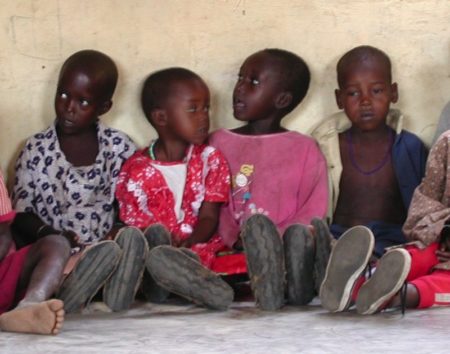I have been reading a wonderful book in recent days by Alan Hirsch, a converted Australian Jew. He calls it “The Forgotten Ways” (Grand Rapids: Brazos Press, 2006). We have been forgetting things though the years, Hirsch contends. Ways to be the church. Ways to follow Jesus. And the way of Christian community, too.
We have come to think of Christian community as if it were a coffee klatch — a “cozy cuddle,” as Hirsch describes it playfully. Community is no longer a “way” at all for many of us. It has become a destination served up once a week, often with donuts — to support us, encourage us, and generally cheer us up. This has become, in fact, its principal feature: we think of Christian community as if it existed for us.
But that is not what we find in the New Testament. There it’s not “the community for me,” but “me for the community” — and the community of God’s people for the world.
“Community” — the word itself — has become so insipid that Hirsch recommends another terminology altogether. He borrows a Latin word from the field of anthropology: “communitas.” Let me tell you, there is nothing cozy or cuddly about communitas. Anthropologists use the word to describe the deep bonding that permeates a group of individuals — when they are exposed to great challenge or imminent danger.
 Let me give you an example from an unlikely source: the tribal Samburu people of northern Kenya.
Let me give you an example from an unlikely source: the tribal Samburu people of northern Kenya.
There is a kind of communitas at the very heart of Samburu culture. It is the system of the “age set.” Every fifteen years or so, the tribe gathers its young men — ages 12 to 25, approximately — for the rite of circumcision. Following the ritual, the young men are sent into the wilderness to hunt birds, gather feathers for display — and, if they are fortunate, battle lions. They are armed with spears, a small bow-and-arrow, and a club called a rungu. After a month or so, the boys are reintegrated into the tribe. But now they are men. They have become warriors — the morani.
The challenge of this shared experience creates a bond that will follow “age mates” throughout their lives. It creates communitas. The experience is messy and unpredictable. Participants face real danger. (I mean, really…send youths to hunt lions with rungus? Wouldn’t it be more sensible to load them on a bus and visit a zoo?) Yet communitas cannot be created in any other way. And without the genuine, shared, edgy adventure of it, I think, the Samburu culture would evaporate in a generation.
Hirsch finds something like this in the apostolic band of Paul and the persecuted church of the first-century. He finds it in the catalogue of prophets and heroes that have animated the church ever since. “The stories that have shaped all subsequent faith… are not safe little bedtime stories. Rather they call us to a dangerous form of faithfulness that echoes the faithfulness of Abraham (Gal 3:15ff.; Heb 11:9-13)” (p.223). The book of Acts is “so brimful of communitas” that it reads like a “rollicking adventure” (p.224).
This is the kind of “league-ness” that we want at the heart of our fellowship. We should not content ourselves with “bedtime stories.” We should ready ourselves instead for participation in the “faithfulness of Abraham.” As a “league” of people-in-mission, we should aim at communitas, too.
But Christian community is an inappropriate end in itself. Our “league-ness” — our sense of community — is a product of our mission in the world. It is not a destination, served up with donuts on Sunday morning; it is a “way” of being-in-mission, day-by-day. It is not our calling to build the league, secure the league, or even to enhance our community directly. It is our calling to “set out” with Abraham (Heb 11:8) and to “press on” with Paul (Phil 3:14). We must cry with the disciples, “Send laborers!” (Mat 9:38), and declare say with Isaiah, “Send me!” (Isa 6:8).
This is what our “league-ness” is all about. Not safety. Not security. Not even survival. It is about wrestling lions with a rungu in our hands. It is about standing together in surrender and obedience — and the rollicking adventure of God’s mission.
Other posts in this League-ness series: